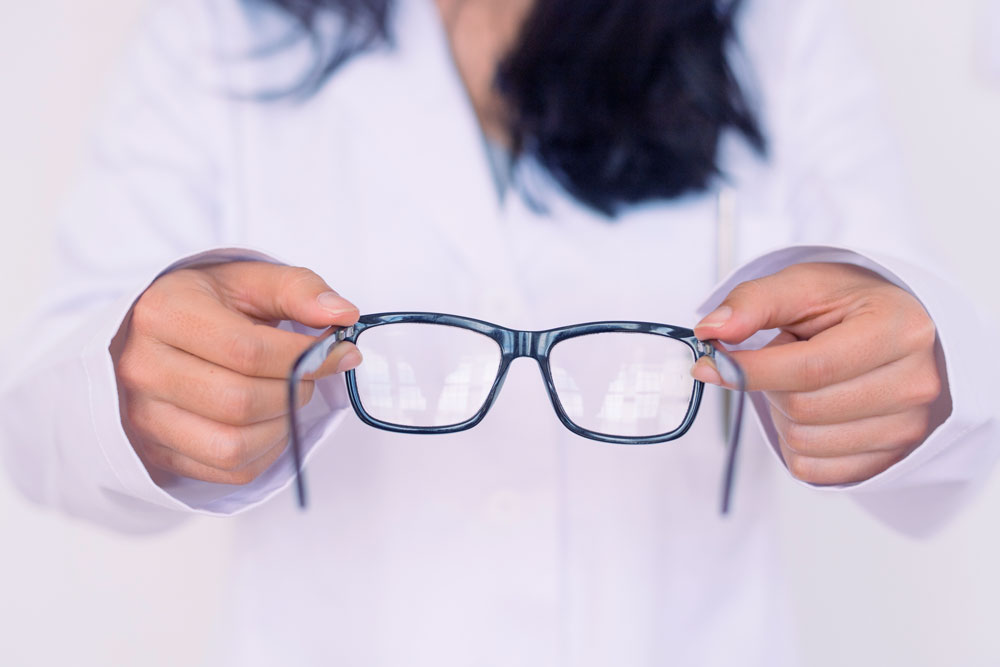Eye Conditions
Cataracts
The natural lens in the eye can gradually becomes less clear as we age. Your vision can become impaired when opacities develop in the lens or the lens gets hazy.
Once the cataract affects vision to the extent that you cannot read or see distant objects comfortably, we will recommend cataract surgery.
Our office co-manages with cataract specialists that are experts in treatment. You’ll be surprised how easy and painless the procedure is!
Macular Degeneration
Waste products may collect within the retina as a result of UV damage or genetic predisposition.
Retinal tissues will not function optimally, potentially leading to gradual or sudden central vision loss.
Drs. Lauck and McLean have the experience and technology to closely monitor for these deposits and visual changes.
If diagnosed early, you may be advised to take eye vitamins and monitor your central vision with a grid.
If more significant changes are detected, you may be referred to a retinal surgeon or low vision specialist.
Glaucoma
Glaucoma gradually destroys the optic nerve tissue in the back of the eye. The greatest danger of glaucoma stems from the fact that the disease is painless and without obvious symptoms until significant damage has occurred.
Glaucoma often runs in families, and the most common cause is from pressure being too high inside the eye. We always monitor for glaucoma during routine eye examinations.
Tests include checking the pressure of the eye, screening for side vision defects, and analyzing the appearance of the optic nerve. If you are diagnosed with glaucoma, we typically prescribe medications that lower the eye pressure.
Most forms of glaucoma are successfully treated with eye drops. Laser treatments and eye surgery are secondary treatments that offer alternative ways to treat more advanced glaucoma.
Diabetes
Diabetic patients should have a dilated retinal examination each year. Diabetes affects small blood vessels throughout the body, including inside the eyes.
These blood vessels can become leaky and sometimes cause visual changes if the disease progresses. Diabetes can often stimulate the growth of new poorly functioning blood vessels in the back of the eye, which ultimately leak and damage the retina.
Laser treatments have proven to slow the progression of retinal eye disease for many patients by destroying these vessels. We have the latest instruments used to detect changes in the back of the eye.
If we discover advancing diabetic eye disease that can be treated or needs further evaluation, we will refer you for consultation and further testing to a board certified retinal specialist.
Dry Eyes
Dry eye symptoms include scratchy eyes, burning, mild redness, and gritty feeling eyes.
Oral medications, reading, or computer tasks in dry environments may aggravate marginally dry eyes.
Dry eyes can be diagnosed by several methods.
This includes adding dyes to observe tear patterns, evaluation of the amount of tears lubricating the front of the eye, and from review of your symptoms and environment.
Treatment may include artificial tears, medications, and/or punctal plugs inserted in the tear drainage canals.

